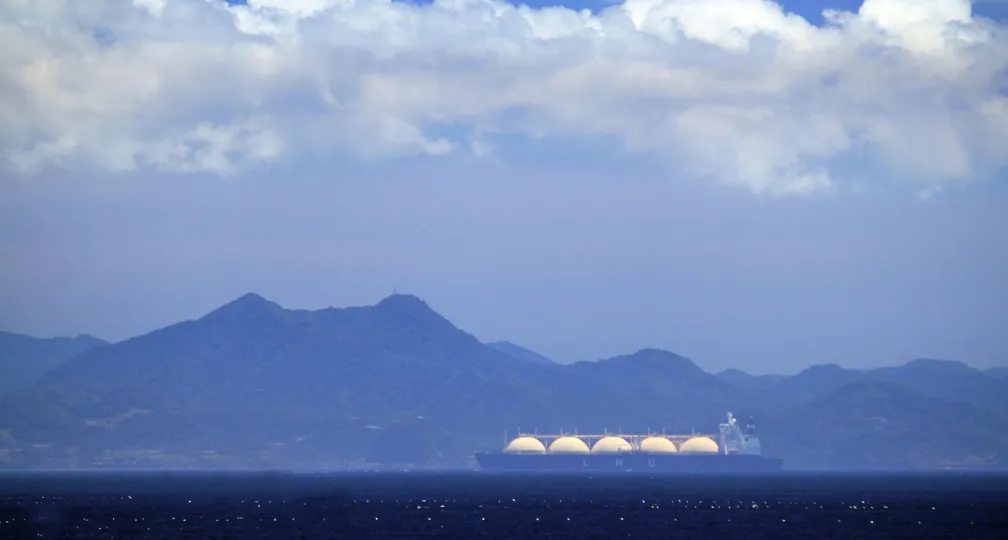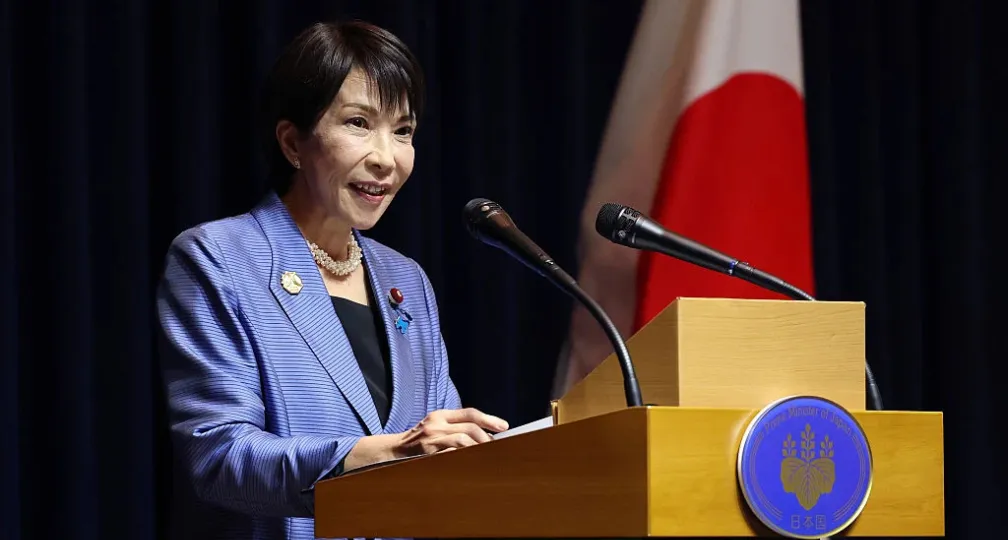The Lessons of the Nippon Steel Saga

The latest regulatory developments on economic security & geoeconomics
By Paul Nadeau, Visiting Research Fellow, Institute of Geoeconomics (IOG)
Trump Extends Tariff Deadline to August 1: Donald Trump announced he would impose tariffs of 25 percent on Japan and South Korea on August 1, extending the deadline from July 9, in his letters to a number of countries announcing their tariff rates. Japan’s rate is one point higher than the announced amount on April 2 and South Korea’s is two points higher. Other adjusted tariff rates for regional economies include Cambodia (from 49 percent to 36 percent), Laos (from 48 percent to 40 percent), Malaysia (from 24 percent to 25 percent), while Thailand’s was unchanged at 36 percent. The letters also stated that goods transhipped through Japan and South Korea to avoid higher sanctions will get a higher tariff (without specifying the level), and that any attempts by Japan and South Korea to retaliate would see the United States add the equivalent rate to the announced 25 percent rate. The April 2 tariffs imposed under the Internation Economic Emergency Powers Act (IEEPA) are under review by U.S. courts and the U.S. Court of Appeals for the Federal Circuit is due to hear oral arguments on July 31.
What the One Big Beautiful Bill Means for Trade: The One Big Beautiful Bill, a megabill containing many of Donald Trump’s policy priorities that was signed into law on July 4, contains several measures related to international trade policy. The proposed “revenge tax” which would be applied against countries that impose “discriminatory” levies on U.S. firms was removed before final passage, but not before G7 countries announced that they would exempt the United States from applying a 15 percent minimum corporate tax rate in anticipation that the revenge tax would be applied in retaliation.
The bill will also eliminate the de minimis exemption on July 1, 2027. The de minimis exemption allows imports under $800 to enter the country duty and tax free. The bill also establishes a civil penalty, starting 30 days after its enactment, for any person attempting to use de minimis provisions in a way that “violates any other provision of” U.S. customs law. De minimis provisions had already been revoked for imports from China and Hong Kong on May 2, 2025, prior to which imports from these territories made up 76 percent of de minimis imports.
Vietnam, United States Reach April 2 Tariff Agreement: Vietnam reached an agreement with the Trump administration that will see Vietnam’s tariff reduced to 20 percent from 46 percent as announced on April 2 as part of Trump’s “reciprocal” tariff program. Under the agreement, U.S. exports will be allowed to enter Vietnam duty-free, and Vietnam will maintain a 40 percent tariff on exports from third countries in an effort to prevent transshipments from China using Vietnam to bypass U.S. tariffs on China.
Canada Rescinds DST after Trump Breaks Off Talks: Canada announced it would rescind a digital services tax days after Donald Trump broke off all trade discussions between Canada and the United States demanding the withdrawal of the DST. The tax would have required U.S. tech firms to pay a 3 percent tax on revenue from Canadian users and would have applied retroactively, leaving U.S. firms owing the Canadian government $2 billion by the end of June 2025. The negotiations will resume on July 21 with the goal of reaching a deal.
Canada’s Parliament Blocks Negotiators from Tabling Supply Chain Management: On July 3, the Canadian parliament passed legislation that would prevent its trade negotiators from putting Canada’s dairy and poultry supply chain management systems on the table in negotiations over the U.S.-Mexico-Canada Agreement (USMCA). Canada’s supply management survived the earlier negotiations which led to the agreement that became USMCA and is included in the Comprehensive and Progressive Trans-Pacific Partnership (CPTPP).
Trump Administration Terminates Most Syria Sanctions: Trump signed an executive order “terminating” the Syria sanctions program on July 1. The order terminates comprehensive U.S. sanctions on Syria since the 1970s but the order maintains and expands sanctions on Bashar al-Assad, his associates, and “other destabilizing regional actors”. Secretary of State Marco Rubio has also been directed to review Syria’s designation as a state sponsor of terrorism.
Trump Administration Lifts License Requirements for Chip Software: The Trump administration lifted recent export license requirements for chip design software sales in China as China and the United States attempt to implement a framework deal to reduce trade tensions. As a result of the announcement, Synopsys, Cadence Design Systems, and Germany’s Siemens are no longer required to seek government licenses for business in China.
China Partially Resumes Seafood Imports from Japan: China announced that it would partially resume importing seafood from Japan following an August 23 ban on imports following the release of treated wastewater from the Fukushima No. 1 nuclear power plant. The resumed imports will not include seafood originating from 10 prefectures, including Fukushima, Miyagi, and the city of Tokyo. The announcement follows an agreement between China and Japan on the technical requirements necessary to resume exports from Japan.
Staffing Updates at the Treasury Department: The U.S. Treasury Department announced a series of appointments on June 27. These include John Crews as deputy assistant secretary for Financial Institutions Policy who previously served as policy advisor to House of Representative Majority Leader Steve Scalise covering economic and financial services policy, Connor Dunn who will serve as deputy assistant secretary for Legislative Affairs, covering banking and finance and who was previously a principal at FS Vector, a strategic consulting firm specializing in financial services policy, Paras Malik who will serve as counselor to the Secretary and as the Department’s chief AI officer and who comes from Boston Consulting Group, Zach Mollengarden who will serve as deputy executive secretary covering international affairs and who was previously an attorney with the Treasury Department’s Office of the Assistant General Counsel for International Affairs, and John Poulson will serve as deputy assistant secretary for Legislative Affairs, covering international affairs and having most recently served as professional staff member on the Senate Homeland Security & Governmental Affairs Committee.
Analysis: The Lessons of the Nippon Steel Saga
Nippon Steel’s acquisition of U.S. Steel finally closed on June 18, exactly 18 months after the proposed deal was initially announced on December 18, 2023. Yet the conclusion of the process feels less like a denouement and instead leaves more questions than answers – none of which are completely assuring for the future of foreign investment in the United States.
Questions should be asked about Nippon Steel’s determination close the deal. Naturally there are material reasons since the merger has created the world’s second-largest steel firm after China’s Baowu Group, and it would have been extremely expensive to pay the $565 million termination fee if the acquisition failed. Nippon Steel has also given up a lot to complete the acquisition, initially offering $14.9 billion – a 40 percent premium on the share price – and has committed more than $14 billion in new investments as part of the final agreement with the Trump administration. While the infusion of cash will mean a lot for U.S. Steel, it’s not an insignificant investment for a company with a market capitalization of just over $20 billion. Justifying the investment will require successfully betting that U.S. Steel is a sleeping giant that can be resuscitated, that there will be a demand for steel as the global economy likely slows, and that Nippon Steel’s leadership will be creative enough and nimble enough to adapt.
On that point, Nippon Steel might be fighting with one hand tied behind its back because of the “golden share” which was included in the national security agreement that both companies signed to complete the deal. This noneconomic share personally gives Trump a decisive veto on a series of corporate decisions that would impact U.S. Steel, such as changing the name, relocating the headquarters, closing or idling plants (outside of safety concerns or updates), transferring jobs outside the United States, or delaying or reducing the promised investments. Once Trump leaves office, “golden share” authority will be delegated to the Department of Commerce and the Department of the Treasury or could be granted to another individual – and once the office of the president gets powers, it’s hard to give them up voluntarily.
Ironically, Nippon Steel voluntarily offered many of these conditions during the acquisition’s review process which may have made the provision more amenable. While golden shares exist in Brazil (Embraer), China (ByteDance), and the United Kingdom (National Air Traffic Services), this is the first time a golden share has been used in the United States in such a way (to this point, they’ve been used to block potential bankruptcy filings). The basic concept is straightforward enough, but the practical application still raises questions as to how the U.S. government can compel Nippon Steel to make the promised investments or how the terms will be enforced. It’s not even clear if a golden share is legal and would survive a court challenge.
While that will be a decision for the courts, the golden share may be on solid ground because it was included as part of a national security agreement and the courts have frequently deferred to presidents on national security concerns. One lesson of the Nippon Steel case will be that the trend towards national security is part of a more endemic trend in U.S. economic policy. National security justifications have been used to restrict everything from TikTok to lumber to pharmaceuticals to more. It’s true that economic interconnectedness has expanded the range of goods and activities with national security implications and the expanding definition partly reflects a genuinely more holistic understanding of what “national security” means, partly reflects bureaucratic gamesmanship where citing “national security” concerns is a strategy to get more resources, but it’s also become an almost foolproof political rationale to justify decisions that are political rather than security. Yet these concerns can never just be isolated to politics because here’s a ratchet effect for national security concerns – it’s easy to add them, but almost impossible to remove them. But without a clear criterion for national security, politics will serve as the arbitrator.
The larger lesson from this is that any coherent process to enable foreign direct investment into the United States has been replaced with what now seems to be a personalist system that enables the individual preferences of whoever sits in the Oval Office at a given moment. While the process was followed to have the Committee on Foreign Investment in the United States (CFIUS) review the acquisition for potential national security concerns, throughout the process it was clear that the personal preferences of Biden and then Trump would be decisive, and concerns about national security were stretched to align with those preferences.
That will matter going forward. If the blanket tariffs announced on April 2 under the International Economic Emergency Powers Act (IEEPA) are ultimately blocked by the courts, Trump may instead seek to apply tariffs under Section 232 of the Trade Expansion Act of 1962 which allows the president to restrict imports due to national security concerns – this is the authority under which Trump has applied tariffs on automobile, steel & aluminum, and more. Unlike IEEPA, the president’s authority to use Section 232 is on firmer ground but Trump would have to apply these tariffs on a sector-by-sector basis rather than a country-by-country basis as with the April 2 tariffs. In this case, countries may negotiate on behalf of a given sector, as Japan is doing now, but private firms may be able to negotiate their own access as well. After all, increasing foreign investment is a priority of the Trump administration and this would give firms an opportunity to avoid tariffs by negotiating their own deal with the Trump administration. The Nippon Steel agreement may not be a direct template for such talks as conditions and circumstances will vary, but it’s certainly a signal that the center of gravity in the U.S. investment sphere isn’t market forces or high-level negotiations, but the choices of the dealmaker-in-chief.
(Photo Credit: shutterstock)
Disclaimer: The views expressed in this IOG Economic Intelligence Report do not necessarily reflect those of the API, the Institute of Geoeconomics (IOG) or any other organizations to which the author belongs.
API/IOG English Newsletter
Edited by Paul Nadeau, the newsletter will monthly keep up to date on geoeconomic agenda, IOG Intelligencce report, geoeconomics briefings, IOG geoeconomic insights, new publications, events, research activities, media coverage, and more.


Visiting Research Fellow
Paul Nadeau is an adjunct assistant professor at Temple University's Japan campus, co-founder & editor of Tokyo Review, and an adjunct fellow with the Scholl Chair in International Business at the Center for Strategic and International Studies (CSIS). He was previously a private secretary with the Japanese Diet and as a member of the foreign affairs and trade staff of Senator Olympia Snowe. He holds a B.A. from the George Washington University, an M.A. in law and diplomacy from the Fletcher School at Tufts University, and a PhD from the University of Tokyo's Graduate School of Public Policy. His research focuses on the intersection of domestic and international politics, with specific focuses on political partisanship and international trade policy. His commentary has appeared on BBC News, New York Times, Nikkei Asian Review, Japan Times, and more.
View Profile-
 Japan’s Sea Lanes and U.S. LNG: Towards Diversification and Stabilization of the Maritime Transportation Routes2026.02.24
Japan’s Sea Lanes and U.S. LNG: Towards Diversification and Stabilization of the Maritime Transportation Routes2026.02.24 -
 Fed-Treasury Coordination as Economic Security Policy2026.02.13
Fed-Treasury Coordination as Economic Security Policy2026.02.13 -
 What Takaichi’s Snap Election Landslide Means for Japan’s Defense and Fiscal Policy2026.02.13
What Takaichi’s Snap Election Landslide Means for Japan’s Defense and Fiscal Policy2026.02.13 -
 Challenges for Japan During the U.S.-China ‘Truce’2026.02.12
Challenges for Japan During the U.S.-China ‘Truce’2026.02.12 -
 India and EU Sign Mother of All Deals2026.02.09
India and EU Sign Mother of All Deals2026.02.09
 Orbán in the Public Eye: Anti-Ukraine Argument for Delegitimising Brussels2026.02.04
Orbán in the Public Eye: Anti-Ukraine Argument for Delegitimising Brussels2026.02.04 Fed-Treasury Coordination as Economic Security Policy2026.02.13
Fed-Treasury Coordination as Economic Security Policy2026.02.13 When Is a Tariff Threat Not a Tariff Threat?2026.01.29
When Is a Tariff Threat Not a Tariff Threat?2026.01.29 Oil, Debt, and Dollars: The Geoeconomics of Venezuela2026.01.07
Oil, Debt, and Dollars: The Geoeconomics of Venezuela2026.01.07 India and EU Sign Mother of All Deals2026.02.09
India and EU Sign Mother of All Deals2026.02.09














